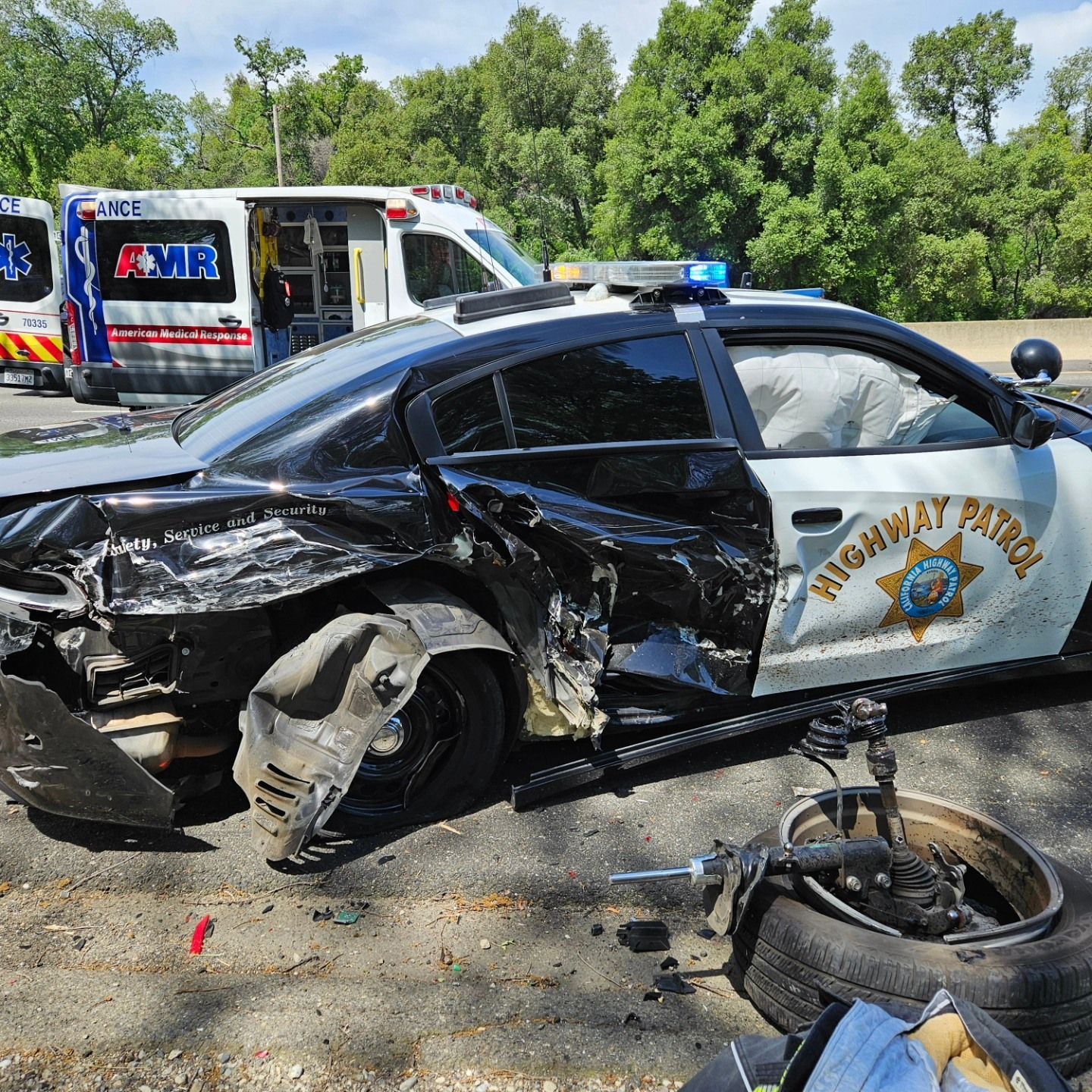GET YOUR FREE CONSULTATION
Seven Catastrophic Injuries You Need to Know About

Have you ever wondered what exactly constitutes a catastrophic injury? Catastrophic injuries can occur in a variety of locations, often where you least expect them. They are not limited to hazardous work environments but can also happen at home, on the road, or during recreational activities. These types of injuries are severe and often life-altering, leading to long-term disabilities and significant financial burdens.
In this blog post, you will learn about seven injuries that qualify as catastrophic so you can better understand the impact they can have on individuals and their families. From spinal cord injuries to traumatic brain injuries, this post will explore the characteristics of each injury and the lasting effects they can have on a person's life.
Spinal Cord Injuries
Spinal cord injuries are frequently deemed devastating, profoundly affecting an individual's mobility and self-reliance. The extent of paralysis—be it partial or complete—hinges on the specific location and severity of the spinal cord trauma. Those with such injuries often necessitate substantial medical attention, rehabilitation, and assistive tools to facilitate their day-to-day activities.
Traumatic Brain Injuries
Traumatic brain injuries result from a sudden and severe impact, such as a forceful blow to the head during a fall, accident, or collision, leading to a disruption in the brain's normal functioning. This disruption can lead to a wide range of symptoms and effects, impacting cognitive abilities, motor skills, and overall brain function. These injuries can range from mild concussions to severe brain damage, leading to cognitive impairments, physical disabilities, and changes in behavior.
Individuals with traumatic brain injuries may require lifelong care and support to manage their symptoms and improve their quality of life. Another significant danger of traumatic brain injuries (TBIs) is the potential for long-term neurological conditions such as epilepsy, Alzheimer's disease, and Parkinson's disease later in life. These conditions can further complicate the recovery process, adding additional challenges for both the individuals affected and their families.
Amputations
Losing a limb in a traumatic accident can have devastating consequences for a person's physical and emotional well-being. Amputations are considered catastrophic injuries due to the profound impact they have on a person's ability to perform daily activities and engage in leisure activities. Individuals who have undergone an amputation may require prosthetic limbs, physical therapy, and psychological support to adjust to their new reality.
Burns
Severe burns can cause extensive damage to the skin, muscles, and tissues, leading to long-term physical and emotional scars. Burn injuries are considered catastrophic due to the excruciating pain they cause and the risk of complications, such as infections and scarring. Individuals with burn injuries may require multiple surgeries, skin grafts, and psychological counseling to address the physical and emotional trauma associated with their injuries.
Spinal Fractures
Fractures of the spine can have serious consequences for a person's ability to move and function normally. These injuries can lead to chronic pain, limited mobility, and nerve damage, requiring ongoing medical treatment and rehabilitation. Individuals with spinal fractures may need to make modifications to their homes and workplaces to accommodate their physical limitations and ensure their safety.
In addition to the immediate impacts of spinal fractures, these injuries can bring about a cascade of secondary health issues that may further complicate an individual's quality of life and recovery process. These can include an increased susceptibility to infections, particularly pneumonia, due to reduced mobility and possible compromised lung function.
Chronic pain is another significant concern, often requiring management through medication, physical therapy, and, sometimes, surgical interventions. The psychological toll of adjusting to a new way of living with mobility issues can lead to mental health challenges, including depression and anxiety. Consequently, individuals with spinal fractures often find themselves navigating not only the physical aftermath of their injury but a complex array of medical and emotional hurdles.
Organ Damage
Damage to vital organs, such as the heart, lungs, liver, or kidneys, can have life-threatening consequences for a person's health and well-being. Organ damage is considered catastrophic due to the potential for organ failure and the need for immediate medical intervention to save a person's life. Individuals with organ damage may require emergency surgery, organ transplants, and lifelong medication to manage their condition and prevent further complications.
Severe Infections
Severe infections, such as meningitis, sepsis, or pneumonia, can be life-threatening if not promptly diagnosed and treated. These infections are considered catastrophic due to their rapid progression and the potential for organ failure and death. Individuals with severe infections may require intensive care in a hospital setting, including intravenous antibiotics, respiratory support, and close monitoring of vital signs to prevent complications and improve their chances of recovery.
Catastrophic injuries can have devastating consequences for individuals and their families, requiring extensive medical care, rehabilitation, and support to help them cope with the physical and emotional challenges they face. If you or someone you know has suffered an accident resulting in a catastrophic injury, consider reaching out to a personal injury attorney for help. They can fight for you in court and help you acquire the necessary resources to find relief and ease your suffering.
Contact us at Frank Penney Injury Lawyers to learn more.
No Fee Guarantee!
Our legal team understands that life can be very stressful after an accident of any type. The financial costs of your accident can add to that stress. When you are asking for help, this should make your life easier – not more difficult. That is why you do not have to worry about any upfront legal fees and expenses when you hire Frank Penney Injury Lawyers to handle your California personal injury case.
At Frank Penney Injury Lawyers, Frank Penney and his staff work on a contingency basis. This means you only have to pay a fee if you win your case. We will never charge a fee unless we obtain a settlement on your behalf. No win. No fee. Case closed.
This means there is no risk in asking Frank Penney Injury Lawyers for help. You get to benefit from Frank Penney’s years of experience, knowledge, and success without needing to stress about the cost. Call today to set up a free initial case assessment or to learn more.
When I first contacted the Law Offices of Frank D. Penney after my accident, I was frustrated with car insurance companies, and medical insurance companies; after all, I was in pain. He and his staff put me at ease instantly! It was such a relief to have someone working on MY BEHALF! They were able to settle my case for more than I initially thought it was worth. THANKS AGAIN!!!
- KRISTA H.
Read more
client testimonials.
Why Choose Us?
- If You Don’t Win, You Don’t Pay
- Free Case Evaluations
- Over 25 Years of Experience
- Compassionate and Caring
- Highly Rated Reviews
- Proven Track Record
- 24/7 Availability
- Quick Response Time
- And More
Our Recent Blog Posts



24/7 Availability – Reach Us by Phone, Email, Chat and More!
If you are involved in any type of personal injury due to the fault of someone else, our experienced team at Frank Penney Injury Lawyers in Roseville, CA can help. We are available to anyone in Northern California 24/7! Give us a call today to learn more at 888-888-0566. We will fight for your rights!
Contact Our Team Today
Frank Penney Injury Lawyers can be reached at the following locations:
No matter where you are in Northern California, or how you reach us, we will be there for you 24/7!
You Can Bank on Frank!


